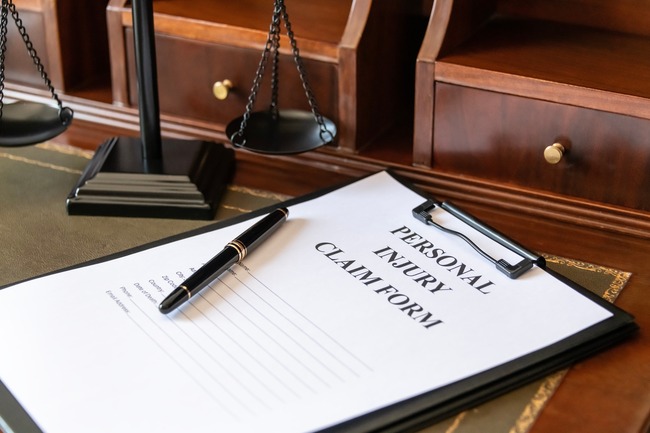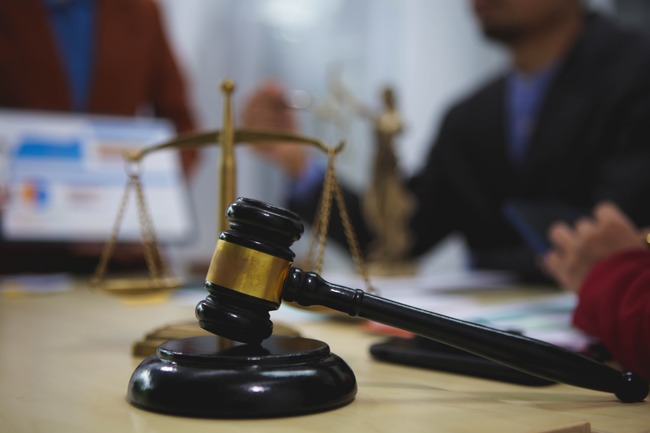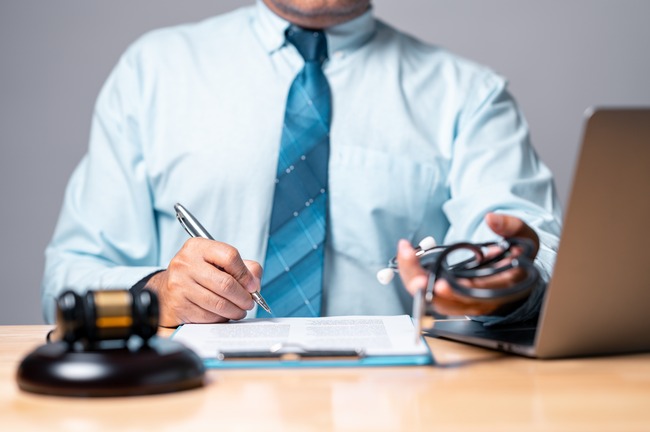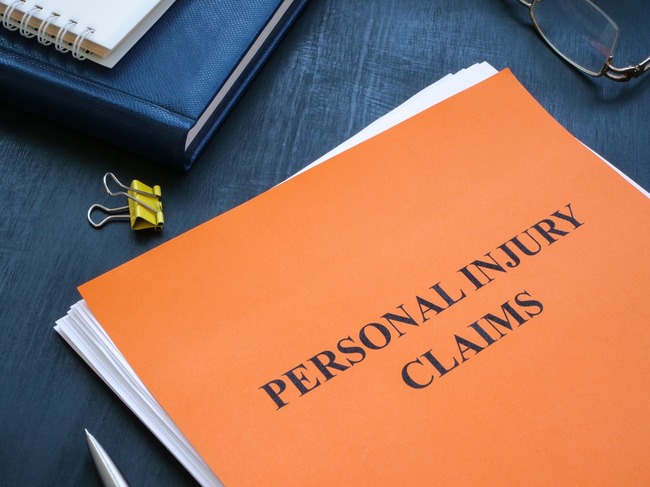Trusted Orlando Personal Injury Lawyer Fighting for the Justice You Deserve
At Florida Lawyers 360, our experienced Orlando personal injury lawyers are committed to helping victims of personal injury in Orlando, Florida. Whether you’ve suffered from a motor vehicle accident, medical malpractice, or catastrophic injuries at a theme park, we provide expert legal representation. Our team is equipped to handle serious injuries like whiplash, broken bones, traumatic brain injuries, and spinal cord injuries, ensuring you receive the compensation you deserve.
If you or a loved one has been injured due to someone else’s negligence, you may be entitled to compensation for medical bills, lost wages, and pain and suffering. Our knowledgeable attorneys will help guide you through the personal injury claim process, ensuring that the liable party is held accountable and that your legal rights are protected under Florida’s comparative negligence laws.
At Florida Lawyers 360, we offer a free consultation to evaluate your case and discuss your legal options. Whether it’s negotiating with an insurance company or representing you in court, our Orlando personal injury attorneys are here to help you recover and move forward.
When is it Necessary to Bring a Personal Injury Action?
People are injured every day due to circumstances that are not their fault.
Not all accidents lead to personal injury claims or lawsuits; the facts and circumstances surrounding your injury will dictate whether there is a need to bring a claim for damages against the party responsible for your injuries.
A viable personal injury claim arises when a person is injured as a result of the negligent, reckless, or intentional conduct of another person or legal entity. Not all personal injury claims lead to the filing of a lawsuit to recover damages.
In most cases, a claim is filed with the insurance company who insures the legally responsible party (or in many cases, more than one insurance company). Most cases are settled before ever getting to a trial, but occasionally it is necessary to have a jury hear your case.
A settlement can occur at any point in the process, however, up until a verdict is reached by the jury.
The Legal Bases for Personal Injury Claims
Most personal injury cases are brought pursuant to the legal theory of negligence. Negligence means that a party, who had a duty to act reasonably in some manner to another party, breached that duty, and as a result of that breach, caused the other party damage.
This is the most common type of personal injury action, and covers many categories of claims.
On occasion, personal injury cases arise out of the intentional conduct of another. One example of this is when one party assaults another, batters another, or falsely imprisons another. If those actions result in injury, a viable personal injury action exists.
Still other personal injury cases are brought under a theory of strict liability. This is a legal theory employed for ultra-hazardous activities, dog bite cases, and some product liability cases.
In a strict liability case, there is no need to show that the defendant acted intentionally or negligently, it is enough that the plaintiff was injured as a result of the product or animal.
Legal Elements of a Negligence Claim
A negligence claim in Orlando is based on four legal elements. To prevail, you have to establish all four elements by a preponderance of the evidence, which means the facts you present are more likely than not to be true.
This is a lower burden and thus easier to establish than what you may be familiar with from criminal cases on television. In those cases, the legal standard is “beyond a reasonable doubt.”
Under the “preponderance of evidence” benchmark, if it is 51% likely that the facts you present are what happened, you have met the standard. The negligence elements are now discussed in turn.
Duty
The first element you must establish to prevail in a negligence claim is that the defendant had some sort of duty of care that he or she was obligated to meet.
This duty is often based on relationships between parties, so for example:
- Employers have a duty to employees
- Business owners have a duty to customers
- Teachers and education administrators have a duty to students
- Caregivers have a duty towards those they provide care for
There are also some duties imposed on all of us by law; so for example, we all have a duty to drive as a reasonably prudent driver when operating a vehicle. All people in general owe each other a duty to act reasonably and avoid causing injuries to others, whenever possible.
Breach
Once you have established that the defendant owed you a duty, you must then be able to prove by a preponderance of the evidence that the defendant breached that duty. Examples of breach differ, depending on the circumstances.
Let’s look at an example using the employer/employee relationship. Employers owe employees a duty to provide safe working conditions. If an employee is injured because a piece of equipment being used was not kept in proper working condition, then the employer has breached this duty.
Another example is that caregivers owe the elderly a duty of care when they provide home health aide services. If your loved one develops bedsores because the caregiver did not take care to turn their position enough, then the duty of care has similarly been breached.
If you are in a car accident, and the defendant is speeding, he or she has breached the duty of care to drive safely and obey the traffic laws.
Causation
Once you have established that the defendant owed you a duty of care and that duty was breached, you then must establish causation. This means you have to establish that the negligent actions of the defendant is the cause of the harm you ultimately suffered.
You must be able to show that you would not have sustained the damages you are seeking compensation for “but for the actions of the defendant.”
Damages
The last element of a negligence claim is the damages. You have to actually have suffered an injury to legally recover, even if all of the first three elements are in place. This means you must be able to establish either bodily injury or property damage to be compensated for the negligence.
Personal Injury Lawsuits Based on Strict Liability
Some members of society are held to a higher standard than the rest of us, a standard referred to as strict liability.
Someone or some company subject to a standard of strict liability has a much more difficult legal standard to “beat”, as you do not have to show that the person or company acted negligently or carelessly in any way to prevail on your claim.
An example of the strict liability standard in Orlando can be found in Florida’s dog bite laws.
If an Orlando resident’s dog bites a person who is either in a public place or lawfully on the dog owner’s premises or the premises of a third party, then the dog owner can be held accountable for the dog’s actions and for the damages sustained by the victim, without regard to negligence or intent.
The Most Common Types of Personal Injury Claims in Orlando
Motor vehicle accidents are the most common type of personal injury claim; so common we have devoted an entire section of this City Guide to them. There are many other common types of personal injury claims brought by injured parties in Orlando, the most common of which are discussed below.
Premises Liability Claims
Premises liability claims arise when an owner, who owes a duty of care to individuals on his or her premises, breaches that duty, and an individual suffers injury as a result.
A premises liability claim may arise in the context of a customer, who slips and falls when inside a place of business, as well as to a guest injured on the private property of another.
Generally speaking, property owners cannot be held liable for injuries that were caused by unknown conditions on their property that they did not have reason to know about. Anyone entering another’s private property is still required to exercise reasonable care for their own safety.
The particular duty of care owed by property owners depends upon the conditions by which the injured party enters their premises. Visitors fall into three categories, business invitees, licensees, and trespassers. The duty is different for each category of visitor.
Business Invitees
The highest duty of care is owed by property owners to business invitees or those people who enter a property for the purpose of doing business.
This includes people who are in a grocery store to do food shopping, in a department store to buy clothing, and those at a gas station getting gas, just to name a few. This classification also extends to repair and other workers invited to a home to do work.
When it comes to business invites, property owners have a duty to keep the premises in a safe condition, and they must either repair any danger on the premises or provide notice of the danger.
In addition to this, property owners must regularly inspect their property for any hazardous conditions. This includes spills in the aisles of a grocery store, merchandise blocking an exit door in a department store, and many other types of dangerous conditions that arise in places of business.
Licensees
The next highest duty of care is owed by property owners to licensees (guests). This spans from friends and others invited into the home of the property owner for a celebration to even uninvited guests, such as a neighbor or friend who stops by unexpectedly.
The duty owed to licensees is to maintain the premises in a reasonably safe fashion and repair unsafe conditions. The duty also requires owners to warn guests of unsafe conditions on the property.
Trespassers
Even though a trespasser does not have permission to be on private property, the owner still has a limited duty to prevent intentional and reckless injury. A homeowner therefore cannot set up a trip wire that results in injury to a trespasser without facing civil liability.
Property owners actually have a duty to warn discovered trespassers of any known dangers that the trespasser cannot detect with average observation.
Children are owed an elevated duty of care
Property owners have a duty to exercise special care and protect children on their property whether they are invited or not. Under the “attractive nuisance doctrine,” owners must take steps to protect children from conditions on their property in places likely to attract them.
This is especially true for swimming pools, but also includes things like trampolines, playground equipment, and any other dangerous conditions that might entice a child. Reasonable steps must be taken by property owners to remove any dangerous conditions or protect children from any danger.
Swimming pools in particular require reasonable steps like fencing in and locking the pool area.
Dog Bite Claims
These claims typically fall under premises liability laws, which require property owners to maintain a safe environment for visitors and guests. Victims of dog bites may be entitled to compensation for medical expenses, pain and suffering, lost wages, and other related damages.
Medical Malpractice Claims
A different type of negligence claim that arises with relative frequency in Orlando concerns defendants in the healthcare industry. Medical malpractice lawsuits, while still personal injury claims have specialized evidentiary requirements.
These cases require a plaintiff to prove that a doctor, nurse, or other healthcare provider fell below the accepted professional standard of care.
Medical malpractice cases therefore require expert testimony regarding the proper standard of care in any given case, and there are many attorneys that specialize in solely medical malpractice law, as it is an in-depth area of law.
Workplace Injury Claims
Another significant type of personal injury claim arises from injuries sustained in the workplace. This area of the law intersects with workers’ compensation law, and is preempted in cases of plain negligence. In cases involving intentional conduct by the employer, however, or in cases where the injured party was not an employee but an independent contractor, personal injury claims can be brought.
Product Liability Claims
Claims arising out of injuries sustained by defective products are another common type of personal injury case. Depending on the facts of the case, it might proceed under a negligence theory or a strict liability theory, but most such claims are based on some type of product defect.
Design defects occur when the design of the product causes the injury. A manufacturing defect occurs when a manufactured product does not conform to the design of the product, and causes an injury.
A warning defect is one which arises when a product did not display proper warning labels or properly advise customers on the risks that are associated with using the product.
Wrongful Death Claims
A final area of personal injury claims is those brought after somebody dies as the result of the negligent or intentional conduct of another. Such cases are brought pursuant to the Florida Wrongful Death Act, and there are actually two categories of damages that can be awarded pursuant to this statute.
The first category are damages that the decedent’s survivors are entitled to recover. Survivors are those close family members defined in the statute as entitled to damages for the death of a loved one. The second category of damages are those the decedent’s estate can recover.
The estate cannot recover as many categories of damages as the survivors, as there is no compensation available for pain and suffering.
Comparative Fault
Even if you were partially at fault for an accident, you may still be entitled to recover most of your damages. Florida follows a “comparative fault rule,” which means the compensation you are entitled to is reduced by the same percentage that you were at fault in the accident.
Let’s say that you were running in high heels through a parking lot, and twisted your ankle in an uncovered pothole. If the court determines you were 15% responsible for your injuries, then your recovery will be reduced by 15%.
If your damages are $100,000, you will only be able to collect $85,000. Courts in Florida are obligated to follow this rule in personal injury cases, and insurance claims adjusters are aware of this rule as well, and will negotiate accordingly if you engage in settlement discussions with them.
How to Determine if You Have a Viable Personal Injury Claim
Personal injury cases can be quite complicated and sometimes take years to resolve if they cannot be settled without a trial.
Many cases can be settled sooner than that, but it is always a good idea to discuss your claim with an experienced Orlando personal injury attorney if you have been injured in any way.
A good personal injury lawyer can advise you about the strength of your claim and the relative likelihood of success, as well as give you an approximate value of your claim.
Speaking with a lawyer before negotiating with the insurance company for the party responsible for your injury often helps maximize your recovery from damages.
After Suffering a Personal Injury
It is important to immediately document your injuries if you were injured in an accident due to the negligent or intentional conduct of another.
You should also seek medical attention as soon as you are aware you may be injured, as the earlier medical treatment is sought the better your prognosis is.
Make sure to keep all of the necessary records you will need, including all reports related to your accident and your injuries, your medical records, and all employment records reflecting lost wages.
Interviewing witnesses at the scene of the injury and taking photographs of the scene is also recommended, if you are able to do so. Talking to witnesses when recollections are fresh is the best time to do so. Make sure to get contact information for everyone involved.
Frequently Asked Questions About Orlando Personal Injury Cases
1. What should I do after a personal injury accident in Orlando, Florida?
After a personal injury accident, seek medical attention right away, even if injuries seem minor. Medical bills can quickly accumulate, and early treatment helps document injuries, whether from a motor vehicle accident, fall accident, or dog bite. Then, contact a skilled Orlando personal injury lawyer. An attorney will guide you through the personal injury claim process, manage dealings with the insurance company, and ensure you meet Florida’s two-year statute of limitations for filing.
2. How long does a personal injury claim take in Orlando?
The time it takes to resolve a personal injury case in Orlando varies based on the injury’s severity and whether a settlement can be reached. Cases involving serious injuries like spinal cord injuries or traumatic brain injuries may require more time for recovery, delaying resolution. A claim can take several months or more, especially if litigation is necessary. With an experienced Orlando personal injury attorney, your lawyer will strive for a timely, fair settlement or trial outcome.
3. What types of compensation can I receive from a personal injury lawsuit?
If you’ve suffered serious injuries, such as broken bones, whiplash, or head injuries, a personal injury lawsuit can help you recover compensation. This may include medical expenses, lost wages, and damages for pain and suffering. In cases of negligence or medical malpractice, additional damages might be available. An Orlando personal injury lawyer will ensure all aspects of your injuries are covered in your personal injury claim.
4. Can I file a personal injury claim for an accident at a theme park like Universal Studios?
Yes, if you’re injured at a theme park, such as Universal Studios, you may file a personal injury claim. Injuries could result from negligent maintenance, faulty equipment, or inadequate safety measures. If you experience catastrophic injuries, like traumatic brain injuries or spinal cord injuries, it’s crucial to document the accident scene. An Orlando personal injury lawyer can help gather evidence, identify the liable party, and secure fair compensation for your personal injury claim.
5. How can an Orlando personal injury lawyer help with my claim for lost wages and medical expenses?
A personal injury attorney helps recover lost wages and medical expenses after an accident. They will assess your injuries’ impact on your ability to work, working with medical professionals to document treatment costs and future care needs. Your lawyer will calculate your lost income and negotiate with the insurance company to ensure fair compensation for both immediate and future expenses related to your injury.
Helpful Resources for Your Personal Injury Case in Florida
Explore these helpful blog articles to learn more about personal injury law and how it can affect your case in Florida:
Difference Between Workers’ Comp vs. Personal Injury
Learn the key distinctions between workers’ compensation and personal injury claims in Florida, and understand which option may be best for you if you’ve been injured at work.
How Much Does It Cost to Hire a Personal Injury Lawyer?
This article breaks down the costs involved in hiring a personal injury attorney in Orlando, including contingency fees and other expenses, helping you plan your legal journey.
Florida Personal Injury Case and Lost Wages
Discover how lost wages are calculated in personal injury cases in Florida and how a skilled attorney can help you recover the income you’ve lost due to your injuries.
Personal Injury Cases in Florida Involving Children
If your child has been injured, this blog provides important insights into how personal injury law applies to children in Florida, including what to expect during a case.
Personal Injury Case in Florida and Telemedicine
Understand how telemedicine is impacting personal injury cases in Florida and how it can affect your medical treatment and compensation during the legal process.
Reach Out to Our Orlando Personal Injury Lawyer
If you or a loved one has been the victim of someone else’s negligence, contact the personal injury lawyers at Florida Lawyers 360 today. We will vigorously fight for your rights and utilize our experience and dedication to get you the compensation you so rightly deserve.
Contact us today at 954-448-7355 for a free consultation!







